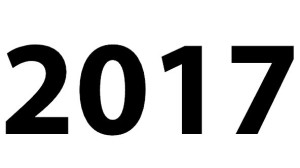Posts Tagged ‘rent’
Sunday, November 3rd, 2019

Add Your Voice To Our Submission To Premier Doug Ford And The Ministry To Make Important Changes To Protect Landlords!
The Ontario Ministry of Municipal Affairs and Housing is having a key consultation with stake-holders on how to create more high quality housing in our province. Making it “easier” to be an Ontario landlord is an important part of the consultation.
The Ontario Landlords Association is submitting what will be a game-changing submission on changes small landlords need to be successful.
We ask our members to share your ideas and experiences for our submission by taking our survey.
For more detailed debate and discussion please post in our Private Members Forum (for verified landlords only). Also, if members want to attend preparatory meetings and the consultations join the discussion in the Private Members Forum.
Ontario Rent Increase Guideline 2017 Set at 1.5%
Monday, December 12th, 2016
Ontario Landlords Can Raise The Rent By 1.5% in 2017
Experienced and successful landlords know the importance of owning safe, attractive, well-maintained rental properties. With great properties landlords can attract good tenants and are on your way to running a successful rental business.
Maintaining and improving properties can be costly. The prices of contractors, plumbers, electricians and building materials keep rising. Purchasing things to make your tenants happy can also add up. Improvements such as replacing windows and doors to help save heating costs, adding new outside lights to create a more secure environment, and buying the latest energy efficient appliances can be a challenge for small landlords on a tight budget.
How Much Can Landlords Raise the Rent in 2017?
According to the Ministry of Housing, the province of Ontario has set the 2017 rent increase guideline at 1.5%
What is the Rent Increase Guideline?
This is a question many new landlords ask us. The rent increase guideline is the maximum amount of money a landlord can raise a tenant’s rent. If you want to raise it more than the guideline you have to get approved by an adjudicator at the Landlord and Tenant Board.
How is the Rent Increase Guideline Calculated?
It is created with information contained in the Ontario Consumer Price Index.Most of the information is gathered by Statistics Canada which measures inflation.
What Was the Rent Increase Guideline for 2016?
In 2016 Ontario landlords could raise the rent by 2.0%
Are All Ontario Rental Properties Subject to the Rent Increase Guideline?
No, not all. For example you are not covered by it if your rental property is vacant, is social housing, was first occupied after November 1st, 1991 or is a commercial unit.
Ontario Landlords Can Raise the Rent by 1.5% in 2017
Are you going to raise the rent? Remember to follow the Landlord and Tenant Board rules if you are which includes using proper forms and giving proper notice.
Ontario Rent Increase Guideline 2015
Friday, June 20th, 2014 
Ontario Landlords Can Raise the Rent 1.6% in 2015
With the cost of running a rental property rising Ontario landlords know raising rents to keep up with increasing expenses is important.
Each year the Ministry of Municipal Affairs and Housing announces what is called the ‘Rent Increase Guideline.’
What Is the Rent Increase Guideline?
This informs residential landlords how much they can raise the rent on tenants.
How Does It Inform Landlords on Raising the Rent?
It’s tells you what the cap is for any increases of rent on your tenants. You can’t raise the rent more than the cap unless you apply and get it approved at the Landlord and Tenant Board.
When Does The 1.6% Rent Increase Cap Start?
This will starting on January 1st, 2015 and end on December 31st, 2015.
How Was The Ontario Rent Increase Guideline for 2015 Calculated?
It’s calculated by measuring inflation.
This measurement comes from data provided by Statistics Canada which creates the Ontario Consumer Price Index.
An Increase of Only 1.6% Is Too Low! My Costs are Much Higher!
Many small residential landlords in Ontario agree with you.
The Ontario Consumer Price Index (CPI) upon which the Guideline is based does not include many inflation factors that small landlords face. The formula needs to change.
For example, BC landlords also have an annual rent increase guideline.
However, the government there understands the financial pressures landlords face and the limits of the basing the rent increase on CIP. This means they will take the CPI and also add another 2% to come up with British Columbia Rent Increase Guideline.
Some provinces encourage investment in residential rental properties by not even having this type of rent control.
Alberta landlords can raise the rent according to the market as long as they provide their tenants with proper notice.
Are All Ontario Residential Rental Properties Covered by Rent Control?
No. Some Ontario properties are exempt and don’t have to follow the cap. These are rental buildings built before November 1991.
But around 85% of rentals in Ontario are covered.
Rent Increase Guideline 2015 – With another low cap for rent increases it’s important Ontario Landlords choose good tenants for your rental properties.
Make sure you screen your tenants carefully and always run a tenant credit check to make sure you know who you are renting to.
Don’t Raise Landlord and Tenant Board Filing Fees for Landlords!
Tuesday, April 10th, 2012April 13th, 2012

The 2012 Ontario Budget
During his budget, Liberal Finance Minister Dwight Duncan focused on repairing the debt problem the province of Ontario faces. Minister Duncan spoke about full cost recovery from fees charged from programs.
Tenant Activists Support More Fees for Landlords
Leading influential tenant activists have commented on the budget speech and have stated that if we have an austerity budget “everybody has to do their bit…how about landlords?”
Does this Mean More Fees for Small Landlords?
We have also received word, via emails sent in, social media, and posts on the Ontario Landlords Association forums, fees for Landlords to file at the Landlord and Tenant Board may be going up.
Enough is enough
It wasn’t long ago LTB filing fees were $150. They were then raised to $170 with little protest from landlords.
Times have Changed. We will no longer be silent.
Any increase in LTB filing fees will not go unnoticed and silent as they did before. Already many small private residential landlords are struggling to keep above water with the long and arduous LTB process. Raising filing fees is unacceptable since few landlords can ever collect the fee back, even after winning at the LTB and getting an eviction.
Does the Government Value Small Private Residential Landlords?
If they do, not raising fees is a good first step. The current rules are “one size fits all legislation” which lumps small private residential landlords with large corporate landlords.
How Can the Government Promote Savings in the Landlord/Tenant Industry?
Let’s focus on making the eviction process more efficient! Rather than put more fees on Landlords, let’s have a meeting of all stake-holders and help the province save money with a more efficient and productive LTB.




